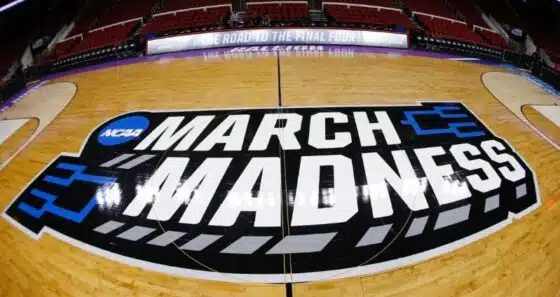College Basketball
College Sports Commission Launches Tip Line For NIL Violations

The College Sports Commission (CSC) opened a tip line Wednesday that allows for anonymous reporting of potential violations of new rules that govern how players are paid for the use of their name, image, and likeness (NIL).
Individuals Can File Reports Via Text Messages, WhatsApp
The commission’s CEO, Bryan Seeley, told The Associated Press the reporting line adds an important method of gathering information about the thousands of deals it is overseeing.
“One of the foundational aspects of any compliance program is reporting methods,” Seeley said. “And it’s important to have reporting methods that people feel comfortable using, which often involves providing anonymous reporting.”
The CSC has contracted with RealResponse, the U.S. Anti-Doping Agency, NFL Players Association, Major League Baseball, and other sports groups. The service provides different methods for people to file reports — via text messages, WhatsApp, web forms, and more.
“Since NIL has become a reality, it has heightened the opportunity for bad behavior and cheating to occur in college athletics,” said David Chadwick, the founder and CEO of RealResponse.
“Everyone agrees the rules need to be followed, there needs to be accountability and enforcement. The reality is that for that to happen, there have to be reporting mechanisms in place and there has to be good technology that allows people who want to report anonymously to do so.”
College Sports Commission Analyzes Third-Party NIL Deals
The CSC analyzes information about third-party NIL deals worth $600 or more that are submitted through an app called NIL Go, which was developed by Deloitte.
Schools are allowed to spend up to $20.5 million per year to athletes. Last month, the CSC said it had approved nearly 6,100 deals worth about $35.4 million.
From June 11 through Aug. 31, the commission said 28,342 students as well as 3,160 representatives and agents signed up on the NIL Go digital platform.
According to multiple sources, there have also been reports about schools becoming frustrated with the slowness of the system and bypassing it altogether.
Seeley said he had not been presented with specific examples of that.
“As we build out the compliance program, I think this is a really good development,” Seeley said.
The CSC revealed in September that most deals are being cleared within a week but acknowledged “frustration” in the time it takes to process certain NIL deals.
“The CSC is working diligently to speed up wait times and regrets the frustration caused by these initial delays in the process,” the commission said in a statement. “As with any new system of this scale, some early delays and growing pains are inevitable.”











